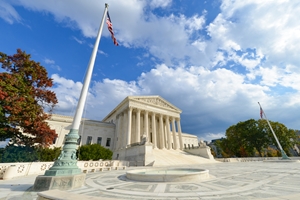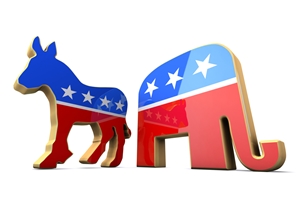
By a narrow majority, the U.S. Supreme Court ruled that consumers who are insured through the Affordable Care Act's exchanges – purchased individually or made available through employee benefits – could continue to receive financial assistance to help defray the cost of premiums.
And for the most part, Americans support the high court's decision, based on a newly released survey.
Approximately 6 in 10 Americans approve of the 5-to-4 decision rendered by the Supreme Court, allowing consumers to pay for their health insurance with the help of subsidies, according to a recent poll conducted by Kaiser Family Foundation. Slightly less than one-third were opposed to the Court's majority opinion.
In the matter of King v. Burwell, opponents to the ACA contended that as the Affordable Care Act is written, Americans who are insured through the state-based exchanges cannot receive subsidies because the law expressly states that subsidies extend to only those covered through the federally facilitated health marketplaces. The government, or in this case the U.S. Department of Health and Human Services, argued that this read too much into the law's wording, as the spirit of the law only makes sense that everyone who's financially eligible be able to take advantage of financial assistance, especially considering that most exchanges are run by the central government.
When the ACA was signed into law, not a single Republican member of Congress voted in favor of it, suggesting that the healthcare law is a highly partisan issue. Similarly, those in favor and opposed to the Supreme Court's decision fell down party lines. More than 80 percent of respondents to the KFF poll in favor of the high court's ruling were Democrats. Meanwhile, 62 percent of those opposed were Republican.
78 percent say more ACA challenges await
Shortly after the Supreme Court announced its decision, President Barack Obama indicated that this finally settles a long-simmering issue – the ACA is here to stay. However, many believe that the ACA has a ways to go before it's considered settled law. More than three-quarters said that the ACA still has obstacles ahead of it, brought to the forefront by legislators who believe the ACA does more harm than good and is unconstitutional. Just 18 percent think that this most recent issue is the health reform law's last legal challenge.
Supporters of the ACA say the health care law has cut premiums for employers who provide employee benefits for their workers. More than 60 percent of health plans with 100,000 enrollees or more are from non-profit insurers, according to a new report from health insurance information firm HealthPocket. In the majority of counties where non-profit and for-profit insurers participate in the exchanges, non-profit insurers have the most affordable premiums for metal plans, specifically bronze, silver and gold.
Consumers say monthly premiums are expensive
That said, consumers on the ground – i.e. individuals who are covered through either HealthCare.gov or an exchange run by their state – say that they're paying an exorbitant amount on premiums. In a separate poll done by KFF, 50 percent of Americans with health insurance find it difficult to pay for monthly premiums.
"The Affordable Care Act has proved the need for health reform, but it also has proved the need for significant changes to the law to reflect Americans' demand for more choices of more affordable health coverage," wrote Grace-Marie Turner, president for nonprofit research organization the Galen Institute, in an opinion piece for the New York Times. "Despite the president's claims, most Americans are seeing much higher costs for health insurance."
Over the next 10 years, the Affordable Care Act will cost more than $1.3 trillion, or the equivalent of $50,000 per person, according to the Congressional Budget Office, BenefitsPro reported.





